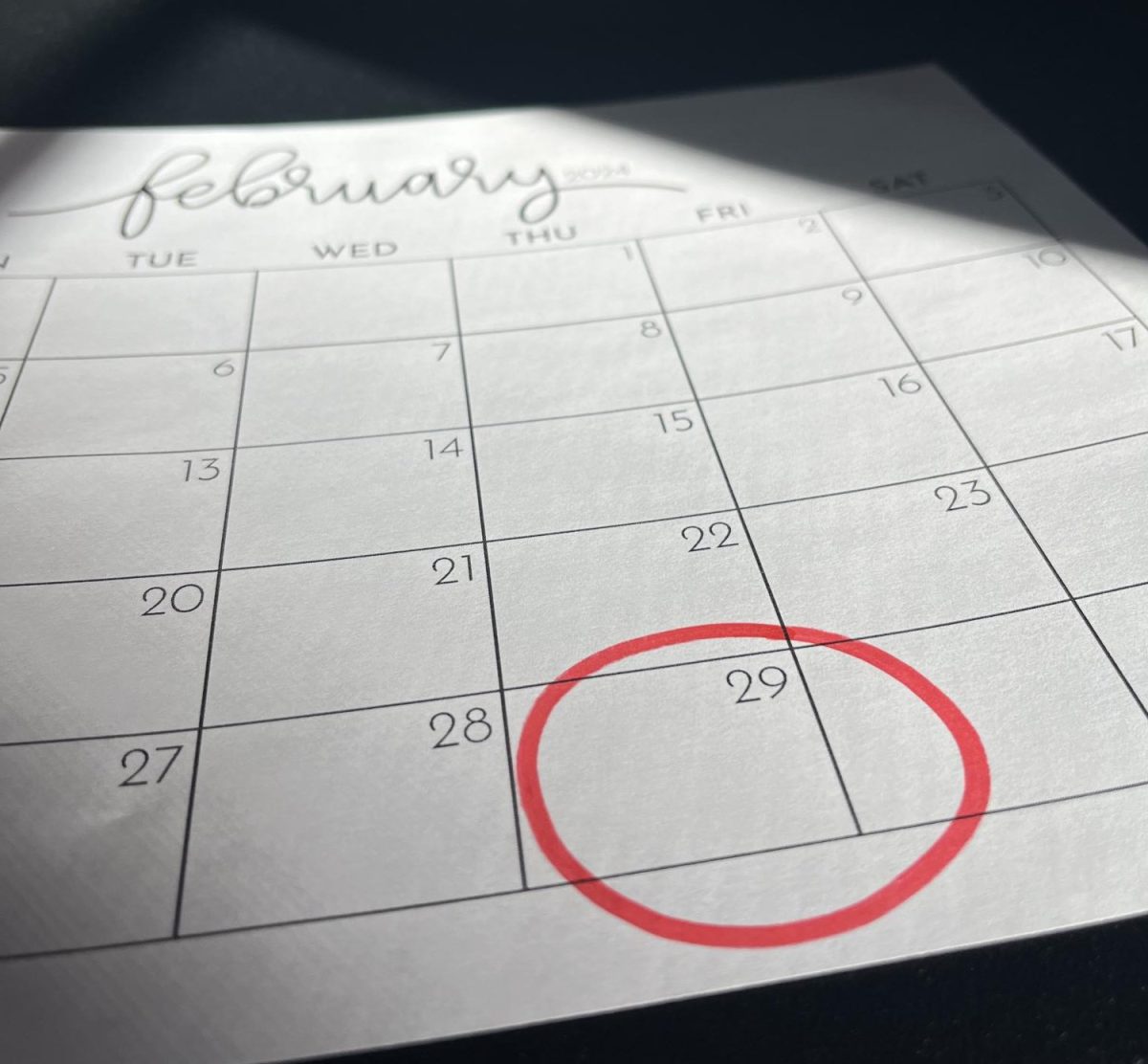2024 is a leap year! Have you ever wondered why we add an extra day to February every four years? According to the Gregorian calendar, a year consists of 365 days while the Earth’s orbit around the Sun is 365.25 days. By adding an extra day every four years, we balance out astronomical seasons with the four seasons: winter, spring, summer, and fall. “The simplest way to explain it is that we have Earth’s orbit around the Sun and it takes 365.25 days instead of being 365 days, which is what we have in a year. So every 4 years that accounts for an extra day,” stated astronomy teacher Megan Dygve. The extra day is added to February because it has the least number of days of any month in the year.
The history of leap years goes back to the Roman times – back to Julius Caesar. In an article written for UNC Chapel Hill’s Morehead Planetarium and Science Center, it states that in 46 B.C., Sosigenes, a Greek astronomer, created the “Julian Calendar,” named after Julius Caesar, which has 365 days and 366 days every four years. Essentially, a leap year occurs every four years with the exception of occurring on years that start a century, such as the year 2100. Astronomy plays an important role in how long our years last; without the extra day, the four seasons would progressively become less and less aligned with the astronomical seasons.
Most holidays celebrated in the U.S. are associated with astronomy as well. “They [holidays] are connected to astronomical observations and different seasons; a lot of it has to do with the position of the Sun in the sky,” said Dygve. “We have different points during the year where the Sun is going to be at its highest point in the sky or it’s lowest point in the sky – we call those solstices. Then we’ve got two points during the year where the sun is midway in between those points and we call those equinoxes. Equinoxes happen in the spring and the fall, while solstices happen in the winter and the summer.” Another example could be Lunar New Year, a celebration based on the moon cycle.

Traditions have been associated with leap years, including, an ancient old Celtic tradition where on Feb. 29, women propose to men; it used to have a legal basis in Scotland and England. A romantic-comedy based on this tradition titled “Leap Year” was released in 2010. Starring actress Amy Adams as Anna, and her boyfriend, Jeremy, played by Adam Scott. Anna decides she’ll surprise him with a ring and propose on Feb. 29, while Jeremy takes a business trip to Ireland. As Anna makes her way to Ireland, the unfortunate weather conditions create a dilemma. The question is will she be able to propose Jeremy in time?
The average person shares their birthday with 21 million people across the globe. However, only five million people share a birthday on Feb. 29 – that’s about 187,000 people in the United States. Those with a birthday on leap day are called “leaplings” or “leapers.” “I’ve had students before with their birthday on Feb. 29; I think they kind of like it because it’s a unique day in the calendar and you know, they can always pretend like they only age up like every 4 years, so they’re younger than everybody else. I think that would be a great birthday to have.” Though leap years may seem insignificant or nonessential, they play a huge role. Without them our years and lives would gradually become more out of sync.



